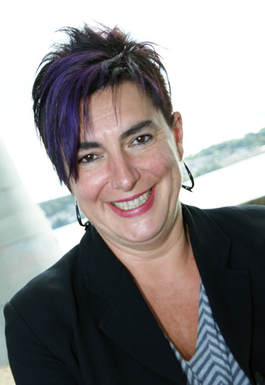 I didn’t really think about period poverty until colleagues who volunteered at a Dundee foodbank told me about young women and girls who were asking about sanitary products and telling their stories about the impact on their lives of not being able to afford them. Some were unable to go to school, some were subjected to bullying, all were unhappy and all embarrassed or ashamed. It’s hard enough being a teenager without having to go through that. When I was that age, I had very heavy and long periods. I can still remember worrying about leakages, and being caught out when it started unexpectedly. Running the gauntlet of the school bus with stained clothes was hideous, and that’s without social media to spread the teasing. But I knew that I wouldn’t have to go without sanitary protection for longer than it took to reach a public toilet or get home. Those girls my colleagues met in Dundee didn’t have that comfort. So we started collecting sanitary products in the staff break out area to donate to the foodbank. I thought people might find it too embarrassing, or the novelty would wear off or might even complain. But they didn’t – they collected so much we had to have two boxes on the go at a time. And it wasn’t just the women, the men bought them too. What still surprises me is that people were so reluctant to speak about it. Women swap stories about birth, about all sorts of ailments, about their sex lives, but periods have remained strangely taboo particularly in mixed company. That’s why I’m so pleased that women like Monica Lennon have spoken out tirelessly and the government and wider society have responded positively. There is a strong message about visible, free sanitary towels and tampons which says it’s normal and here’s what you need as well as the most important aspect – making sure all women and girls have the protection they need. You could argue that providing free products in offices and public spaces is simply subsidising people who can already afford them. However, I think universal availability is part of destigmatising. All women go through this and it’s important for young girls in particular to feel “normal”. No one should ever feel ashamed of such a natural human function, nor should they be bullied, teased or excluded because of it. Sanitary protection is a basic human right and I am very pleased to be supporting this campaign.
0 Comments
|
AuthorWrite something about yourself. No need to be fancy, just an overview. Archives
February 2024
Categories |
 RSS Feed
RSS Feed